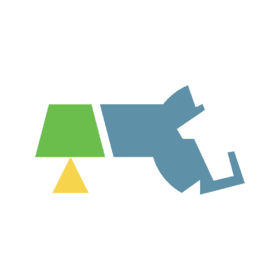April 1, 2021 Blog
Shoulder to Shoulder: Core Reflections…
I have often said there is no substitute to living a diverse life. This can mean many different things to different people. For me, the diversity I celebrate in my family and friends has shaped my personal view of the world as a white cis-woman who grew up poor and has experienced social and economic class mobility. As a result, I tend to avoid social circles or clubs that don’t embrace diversity, and in my professional life have chosen not to pursue job opportunities at places where diversity is not a priority. I feel strongly that living a life without connecting with people from backgrounds and identities other than one’s own isn’t living fully. That’s not to say that if you are not yet living a diverse personal life there is nothing you can do. There are always things you can do to advance your DEI knowledge, awareness, and skills.
One of the first tasks I completed after I joined CFWM as the Vice President for People and Culture was my personal Intercultural Diversity Inventory (IDI). As described in earlier Shoulder to Shoulder posts, everyone who works at the Foundation has done this over the past year. Our DEI consultants, Inclusive Performance Strategies, then met with me to review my results in an individual session. They asked me, “How did you do it? How did you prioritize and create a diverse life without ever leaving Western Mass?” I’ve never before been asked that and it prompted me to reflect. I attribute a lot of the diversity I have cultivated in my life to my experience growing up poor in a college town.
Throughout my childhood, I interacted with many different people of all ages, identities and economic classes – people who were disabled, LGBTQ+, spoke multiple languages, White, Black, Dominican, Puerto Rican, Cambodian, African, multiracial and multiethnic. But it wasn’t until I was an adult that I became more intentional in my DEI practices.
I knew I needed to commit to understanding inequity in order to be the best person I could possibly be. This commitment was motivated by my family. I have family members who are disabled, siblings and children who are biracial, and I was raising a white son. It was critical to me that I learn about race and racism so that I could be the best Mama to my children, to raise my son to be an antiracist adult and my daughter to be a Black woman who felt affirmed in her racial identity.
I decided to set a few simple rules. First off, if a person exhibited any form of oppression, they were not welcome in my home. I was happy to help educate, but I set clear boundaries for how much such people have access to my family. Secondly, I emphasized difference and normalized how important it is to surround yourself with people who have varying experiences to yours. This was evident in the books I read my children, the T.V. shows they were allowed to watch, and the people who we welcomed into our life. I sought out friends and colleagues who came from diverse backgrounds. I read books and watched movies from folks of color, LGBTQ+ people, poor people. I looked for information everywhere I could find it, had a lot of challenging conversations, lost a few friends and family members along the way, and gained valuable relationships with people I may never have met otherwise.
All of this learning translates into my job at CFWM. I show up every day as a whole person and do my best to create the conditions of trust and safety that allows others to do the same. I make efforts to be intentional and think about impact in every aspect of our work across all stakeholders. I believe that no action or effort to address diversity, equity, and inclusion is too big or too small, unless you are doing nothing.
One of the best lessons I learned in all of this was that I need to be humble. When someone calls me out or calls me in to learn more about their experience, I have to remind myself that I am still learning. I grapple with the knowledge that I have been a part of individual and systemic oppression. The guilt, sadness, anger, resentment, and opposition I feel needs to be suspended. I need to forgive myself and make a concerted effort to do better moving forward. Most importantly, I have to take a pause and really listen in order to find ways I can move differently in each moment, to look for the information I need and to educate myself and those around me. And I cannot emphasize this enough: I believe people when they share their experience with me. I do not deny anyone their reality, even if it is hard for me to relate.
This is where I find myself today – excited to do everything I can to help the Foundation reach its DEI goals. I’m eager to review the organizational framework our consultants are developing for the Foundation to use going forward (this is scheduled to happen shortly and will be addressed in a future blog). Poised to listen, learn, and share information, I am firmly committed to helping advance real change in the community where I have lived and loved all my life.
Best,
Briana Wales
Vice President for People and Culture
